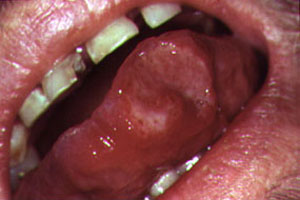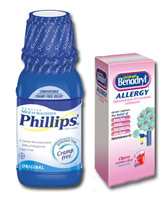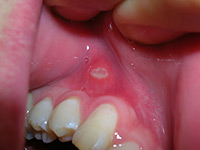If you are suffering from a big, nasty, painful canker sore, also known as an Aphthous Ulcer, one of your burning questions is probably when will it go away? Unfortunately, most times canker sores last a week to as long as two weeks. It depends on what class of sore it is, the kind of canker sore treatment you are using, if any, the size and severity of your sore and sometimes even where it is located within your mouth.
Types of Canker Sores
 When canker sores go away can depend on the type. Simple sores can appear 3-4 times per year and don’t last long, typically a week or less. They often occur in young people, i.e., between the ages of 10 and 20. Complex canker sores usually occur in people who have had them before.
When canker sores go away can depend on the type. Simple sores can appear 3-4 times per year and don’t last long, typically a week or less. They often occur in young people, i.e., between the ages of 10 and 20. Complex canker sores usually occur in people who have had them before.
There are three main classifications of mouth sores:
Minor – these are painful and usually heal within two weeks. They are the most common kind and are the majority of cases – around 80%. The size can vary but they are usually fairly small, less than 1/3 to 1/2 inch in diameter, oval or roundish, and they heal without leaving a scar.
Major – Mouth sores falling into this category are also painful, larger than 1/3-1/2 inch in diameter, can have odd or irregular shapes. They can last more than two weeks, even as long as six weeks. These aren’t as common, fortunately; about 10% are this type. In some instances they may leave a scar. This type of canker sore is often seen in people with compromised immune systems.
Herpetiform Aphthae – Usually found in older people, these sores develop in clusters of lesions to form one bigger ulcer. They can take about two weeks to heal and do not leave a scar. About 10% of cases are in this category.
What Can You Do To Make Your Canker Sores Go Away Sooner?
Treatments and Home Remedies
Treating your mouth ulcers can sometimes speed the healing. Sometimes the treatment depends on the cause. For simple, run-of-the mill mouth ulcers, you can try one of the many home remedies available including baking soda and water mouth rinse or paste, a salt water rinse, alum, milk of magnesia, peroxide, Aloe Gel, Bee Propolis Extract
, and many others. Over-the-counter mouth ulcer treatments that may help include products that contain benzocaine ( a numbing agent) such as Orajel, or Gly-oxide Antiseptic Oral Cleanser
, which is a combination of glycerin and hydrogen peroxide, or a product such as Cankermelts Medicated Discs
which contains licorice root. As with most home remedies, these products need frequent application but they may speed healing and reduce the pain.
In severe cases, you may need to see your doctor or a dentist for treatment. Options include prescription mouth rinses and topical ointments. If he or she offers it, your dentist may be able to zap your canker sore with a laser, which will cauterize the sore and immediately relieve the pain. It will be completely healed in a couple of days. The average cost for this simple procedure is about $25 but it will vary depending on your dentist. Other means of cauterization include the prescription product Debacterol, which will completely eliminate the pain and promote full healing within 3-5 days. Others like to use silver nitrate, which is available online, to cauterize their canker sore.
Avoid Acidic or Spicy Foods
When you have a mouth sore you, to prevent further aggravating it avoid eating or drinking acidic or spicy foods and beverages and don’t eat foods with sharp edges such as toast, crackers, tortilla chips, potato chips and the like.
Switch Toothpastes
Frequent mouth sore sufferers may benefit from switching to a non-sodium lauryl sulfate toothpaste, which may cut down on the number of sores they experience. SLS has been shown In several studies to be an oral irritant because it is a detergent and foaming agent than can dry out the lining of the mouth.



